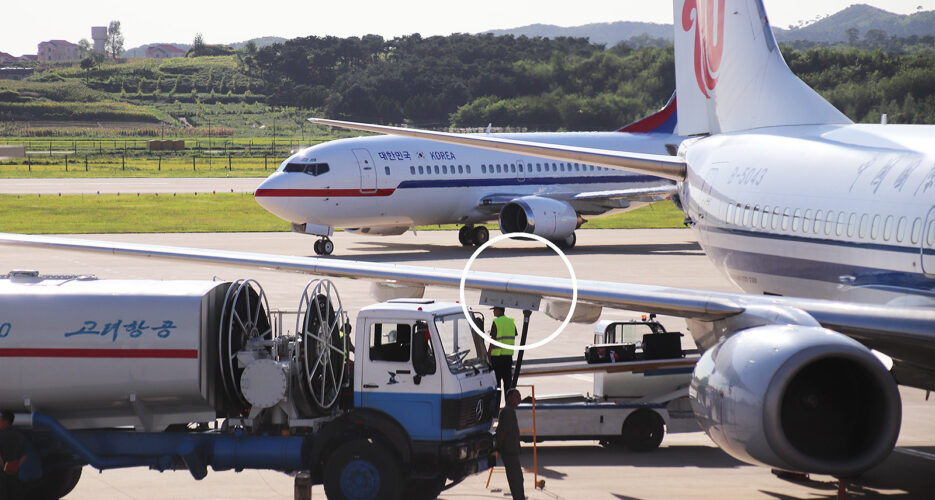About the Author
NK News
NK News is a North Korea specialist news and information resource head-quartered in Delaware, U.S.A.

Get behind the headlines
|
News NK Pro investigation sheds light on Air China’s N. Korea fueling arrangementsJet fuel transfers to Air China raise questions about where Pyongyang is getting supply from  An investigation by NK News's sister site NK Pro on Monday raised questions about how and why – in light of United Nations sanctions – Air China is able to purchase jet fuel when its aircraft go to North Korea. Photos obtained during the NK Pro investigation showed that on at least seven times since 2016, the Chinese flag carrier's jets were photographed connected or near to Air Koryo fuel tanker vehicles at Pyongyang's Sunan International Airport (FNJ). © Korea Risk Group. All rights reserved. |